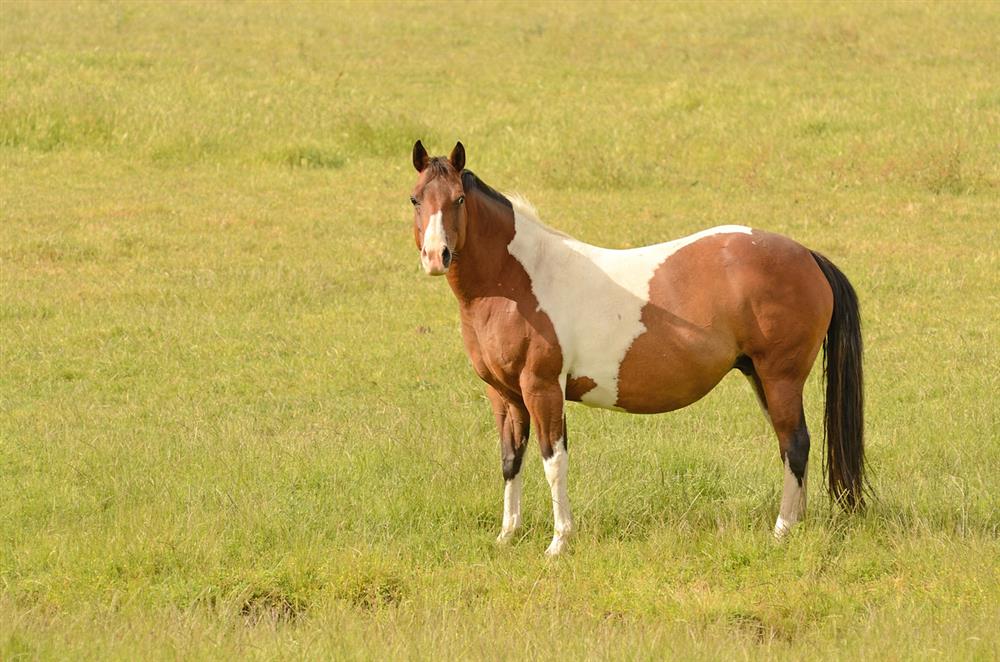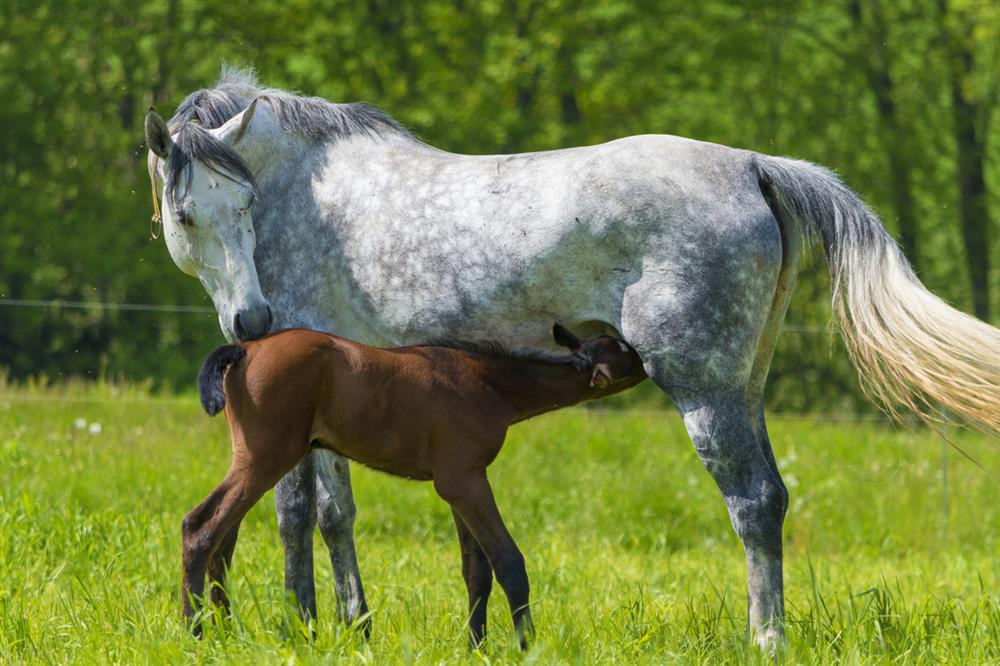With Spring on the way many owners are looking forward to having some new arrivals! It can be a nerve-racking time for those with broodmares, keeping them and the unborn foal happy and healthy.
The gestation period of the mare is generally just over 11 months (approximately 340 days), although the exact period will vary depending on a number of factors, including the horse’s age and environmental conditions. For example, research indicates that longer day lengths promote foal maturation and may bring foaling forwards, meaning the mare needs to be in optimum condition well in advance of the calculated foaling date. Nutrition plays a vital role in both mare and foal health. Foetal growth rate is greatest in the final three months of pregnancy, meaning that nutrition of the mare during this time is extremely important for her own health, and for successful growth and delivery of the foal.

Feeding the broodmare does not have to be complicated, but here are a few points that should be considered:
Dietary requirements
Nutrients gained from food are important for the maintenance of the horse (staying alive), growth and repair, exercise and also for reproduction, including the pregnancy and lactation periods. In the 9th to 11th month the mare’s energy, protein and mineral requirements will increase, meaning their feeding requirements will also change due to increased nutrient demand. At the same time, your mare may have a reduced appetite due to decreased capacity within the digestive tract due to the growing foetus. One of the easiest ways of assessing your mare’s energy requirements is to assess her body weight and fat stores, with feeding being based on her current body weight, not her starting weight.
Maintaining a healthy weight
Maintaining a healthy weight in your pregnant mare is much better for the health of both the mare and foal. Getting the right balance is essential as excess energy will be stored as fat which can cause unwanted stress on her limbs, joints, and body systems, and potentially cause difficulty when she goes into labour. Research also indicates that foals born to overweight mares may have increased susceptibility to joint issues and insulin resistance, highlighting the importance of monitoring your mare’s condition. Fat scoring or body condition scoring is a great way to do this, although it should be remembered that your mare’s abdomen will extend as the foetus grows, and this should not be mistaken for being fat. Assessing fat stores along the neck, top line and hindquarters will give a more accurate indication of the mare’s fat stores. Equally, be aware of your mare not receiving enough nutrition and losing body weight. If the mare is underweight and not consuming enough energy, this may limit her ability to support the foetus’s growth which can lead to reduced foal birth weight.

A balanced diet
A balanced diet is key throughout the gestation and lactation periods. Access to clean, fresh water and a vitamin and mineral supply along with good quality forage should be the base of your mares’ diet, however the pregnant mare requires additional nutrients to remain healthy and meet her energy requirements. Mares at grass who are good doers will still require vitamins and minerals to meet their nutrient requirements. Stud feeds are one option to provide such nutrients however they need to be fed at the recommended quantities to provide adequate nutrients. For mare’s prone to gaining excess weight, balancers are an excellent alternative as they provide the key nutrients whilst providing minimal extra calories.
In summary, know your mare’s energy requirements and feed accordingly, supplying good quality forage and a balancer if necessary. Monitor her body condition and make changes to the diet if needed and don’t forget to speak to a nutritionist if you are in any doubt about your mare’s requirements.
If you have any queries about your horse's diet, please contact our Nutritionists who are available seven days a week and would be more than happy to help. Just call freephone 0800 585525 or email our Director of Nutrition - [email protected].

